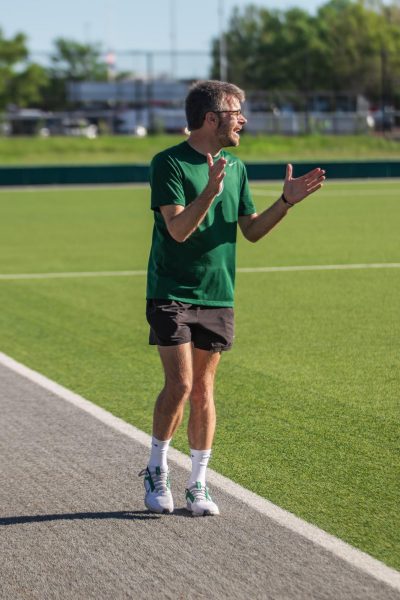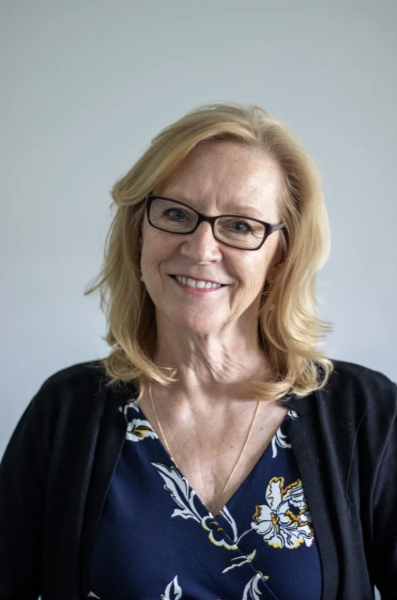School Redesign Part 2: Teachers emphasize need for student feedback
Teachers emphasize importance of feedback as current school system fails students
“I don’t believe that teachers should have desks in their classroom,” said special education teacher Patrick Dipman. “I believe that what that creates is squatters rights.”
Dipman is explaining one of his many ideas for the school redesign coming next school year, with suggestions such as mandatory community service for students. He especially stressed the need for the school to get more involved in the Lawrence community.
“The more that… the community can interact with students, the more likely people will be accepting of [the school],” Dipman said. “ [Community members are] going to say that there’s some great people [at Free State].”
Social worker Elizabeth Crickard is an advocate for the project, but emphasizes the need for student input in the redesign process.
“I really want to hear students’ ideas about redesigning what school looks like here at Free State,” Crickard said. “I particularly want to hear from the students who sometimes don’t have a voice in the planning discussions.”
For Crickard, the redesign is an opportunity to reform the school’s educational methods in a way that keeps students engaged. One of her goals for the reform is to reach out to students who aren’t given a chance to speak out about changes they see in their school—a task she believes won’t be easy.
“Rather than just sending out an email to all students and waiting to see who fills that out, we would invite students to be involved in discussion groups,” Crickard said, adding that feedback from students who have dropped out and who are at the juvenile detention center are crucial as well.
Crickard and Dipman both expressed frustration with the current school system, as they feel it is not designed for students with whom they typically work.
“As a social worker who works with students who don’t find that this current model of the school day works for them… I wanted to get in the conversation early on to help advocate for including those voices in the redesign process,” Crickard said.
Dipman commented that many of the programs which people want to see implemented are already in force within the special education department. He hopes to see the redesign follow methods from the department—especially in how they teach students to have a successful career by moving away from teaching specific material and towards teaching work and life skills.
“I’m very good at teaching students how to be succesful in a work environment,” Dipman said, “I believe [some teachers at Free State are] fantastic teachers because they have a skillset that goes beyond their specialized [subject].”










